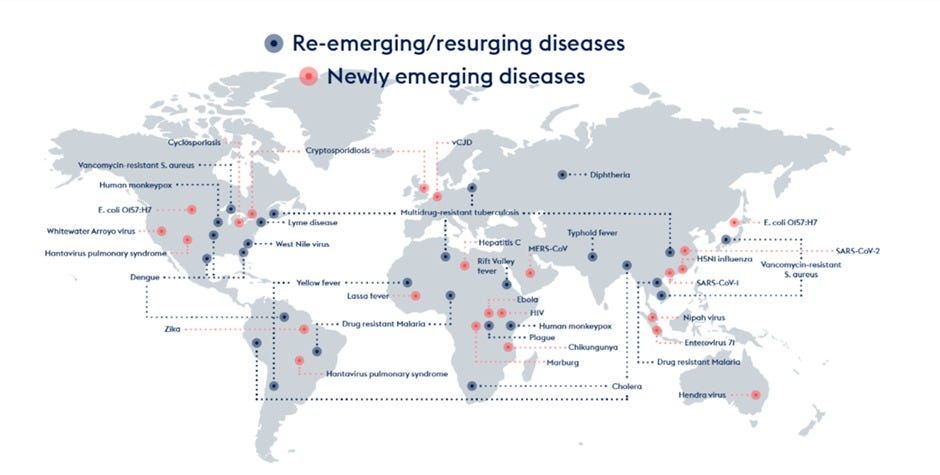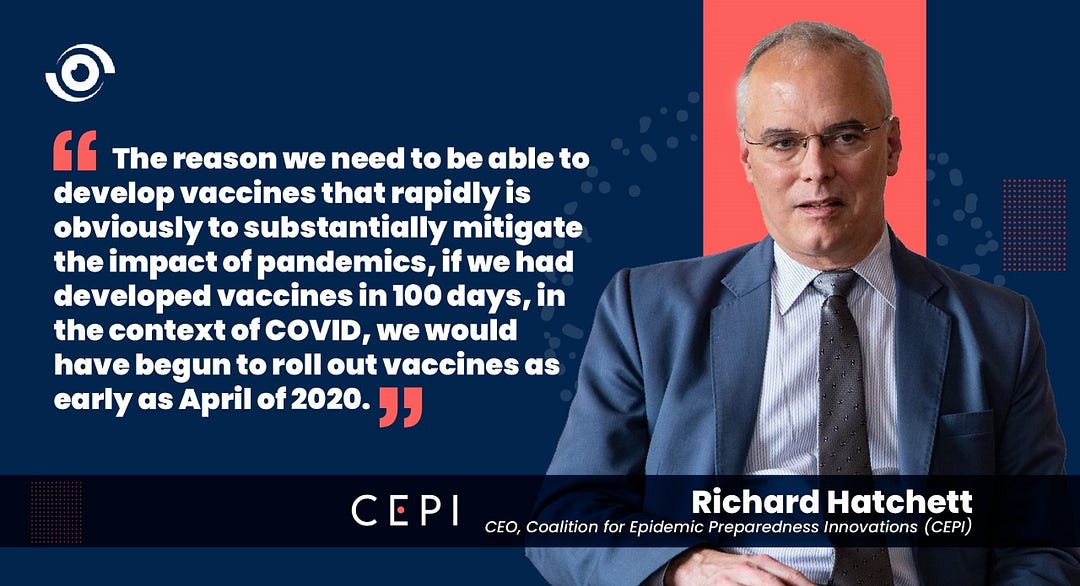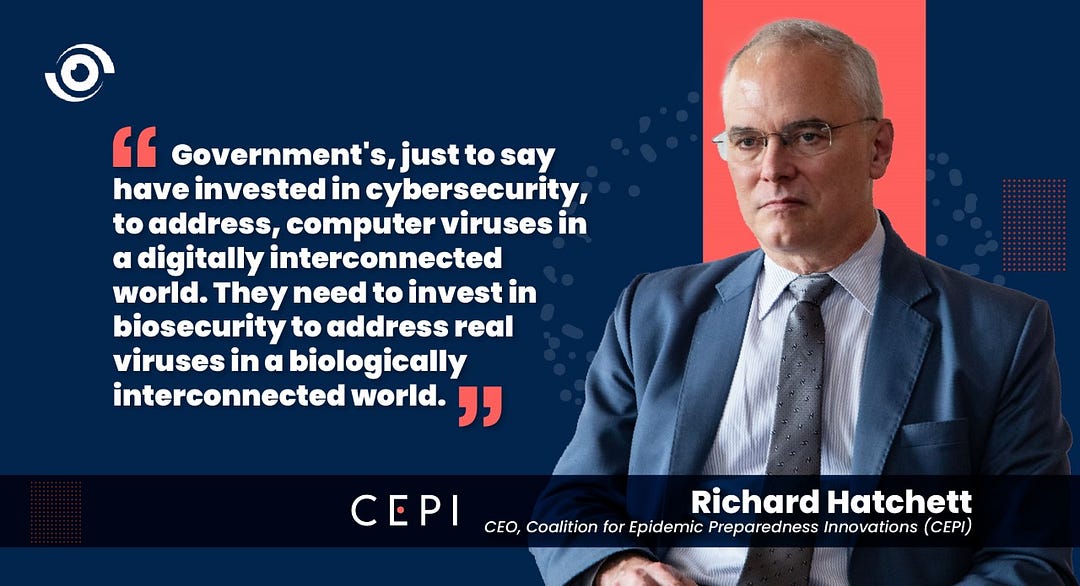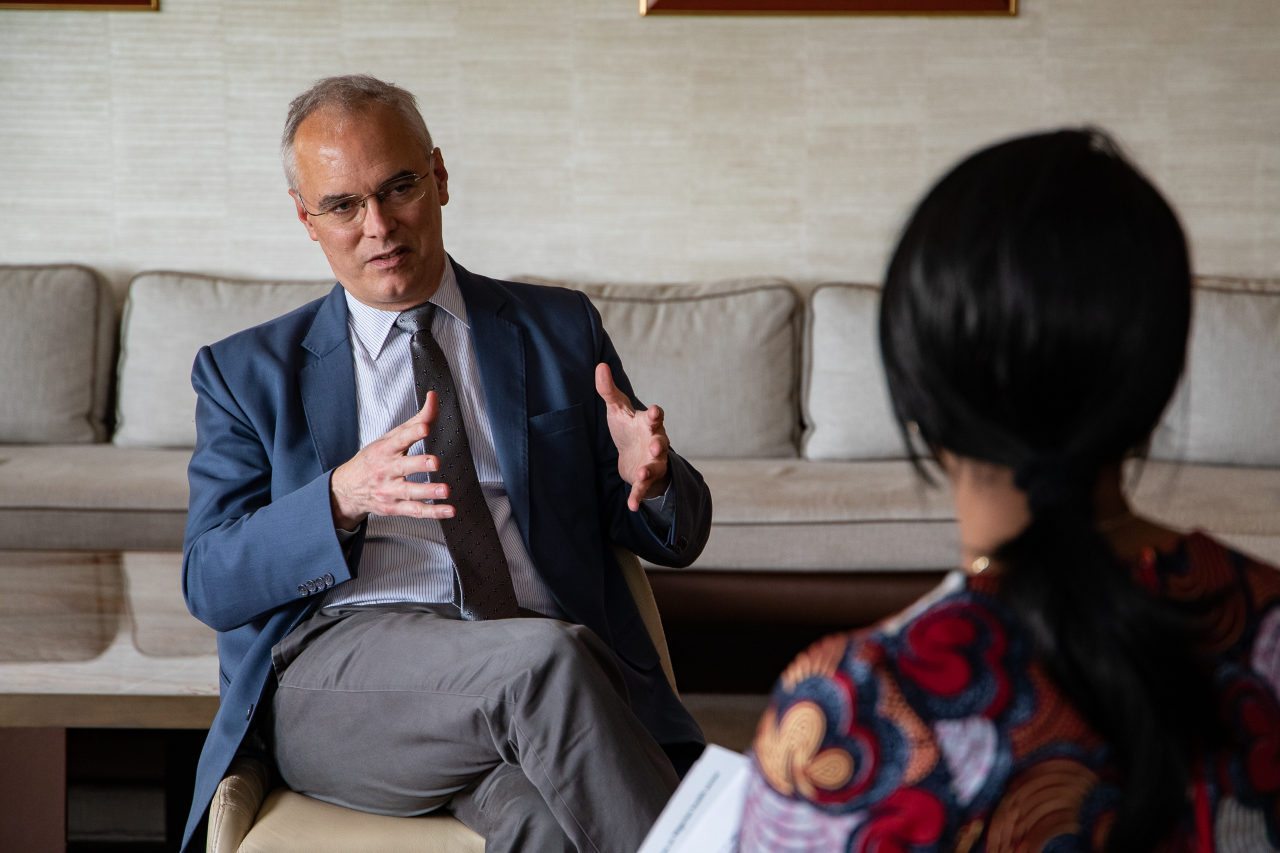Benjamin Franklin wrote “In this world, nothing can be said to be certain except death and taxes”. However, COVID-19 has reminded us that we can be certain that pathogens will continue to emerge and re-emerge. What we cannot be certain of though is where these pathogens will emerge from, who the host may be or what the impact may be. So, our best defense is to be prepared.
In 2017, a few countries and philanthropies took a chance, pooled funds and set up the Coalition for Epidemic Preparedness Innovations (CEPI) with a lofty mission to enable the development of vaccines against pathogens, which may cause epidemics, in order to stop them before they turn into large-scale health emergencies. The COVID-19 pandemic has come as a hard justification of the organisation’s existence. To date, over 5.9 million people have died from COVID-19 globally. It is estimated that by the end of 2025, the COVID-19 outbreak would have cost US $28 trillion.

Dr Richard Hatchett, the Chief Executive Officer of CEPI, is in Nigeria this week and he sat down with Nigeria Health Watch to reflect on key lessons from the rollout of vaccines through the COVAX facility, of which CEPI is a co-lead, as well as outlining the investment case for vaccine development, the importance of political will in epidemic preparedness funding and the need to build the capacity for vaccine development for pandemics in Africa. Below is a summary of his reflections, edited for brevity.
On the Future of COVAX
The COVAX facility, co-led by GAVI, the Vaccine Alliance, CEPI and the World Health Organization (WHO) was established to ensure equitable access to COVID-19 vaccines for low-income countries. As of the 24th of February 2022, 10.6 billion COVID-19 doses have been administered across 184 countries. However, early bilateral deals between pharmaceutical companies and high-income countries, meant they were at the front of the queue for the very scarce resource. The COVAX negotiated doses were unfortunately pushed to the back.
The vaccines have now started flowing, but not as rapidly as was intended. There have also been delivery challenges, as only 25.4 million doses have been administered in Nigeria so far. According to Dr. Hatchett the need to secure funds for COVAX, a facility set up as an emergency mechanism, meant that it was not “at the front of the line for the first vaccines that became available”. However, it is important to recognise what went well — 1.2 billion vaccine doses have been delivered so far to 144 countries. It will be necessary to do a bit of re-engineering and modify COVAX in line with the experience gained so far in order to achieve the lofty ideals of solidarity and equity.
On the feasibility on 100 days to develop a safe and effective vaccine
Nigeria has continued to face the threat of infectious diseases like monkeypox, Lassa fever and cholera with only the latter having therapeutics and vaccines. It took 326 days to develop and gain authorisation for safe and effective vaccines for COVID-19. So, using the lessons learnt and with access to the latest technologies, CEPI is aspiring to reduce vaccine development timelines to 100 days. “The reason we need to be able to develop vaccines that rapidly is obviously to substantially mitigate the impact of pandemics, if we had developed vaccines in 100 days, in the context of COVID, we would have begun to roll out vaccines as early as April of 2020”. The speed of vaccine rollouts would also help to reduce the health and economic impact of future pandemics. Ultimately, according to Dr Hatchett, the world would be able to mitigate future pandemics with faster vaccine development, this would include faster vaccine production and the ability to scale quickly. This will also require better surveillance, better early warning systems and information sharing that would enable rapid decision making.

On making the investment case for vaccine development
The pandemic has taught us all many lessons. At the onset of the vaccine rollout, the high demand for vaccines and limited global production capacity was evidence that the manufacturing capacity of vaccines needed to be expanded. Bottlenecks that contributed to the restricted supply included disputes about access to intellectual property, deficits in the physical production capacity, as well as governance mechanisms. Because the emergence of infectious disease threats is unpredictable, market failures often occur because the private sector is reluctant to invest in vaccines, where there is uncertainty whether there is a market for these vaccines. However, the COVID-19 pandemic has seen companies take risks in vaccine development that have paid off. While this cannot be said to be an equitable model according to Dr. Hatchett “…what the private sector has seen is that preparedness can provide financial rewards”.
The greater urgency for vaccine development on the African continent will require governments “to invest in the capabilities themselves to respond to biological threats, if we don’t want them to undermine societies and our economies”.
On prioritising national and global health security
During the recently concluded Munich Security Conference, Dr Rajiv Shah the President of the Rockefeller Foundation spoke about a COVID Charter, to put the global economy back on the path of convergence. This would not only require countries to invest in their domestic recovery, but also for high income countries to make significant investments in preventing the next pandemic, through existing mechanisms like Gavi and the Access to COVID-19 Tools (ACT) Accelerator. At the same conference Dr Ngozi Okonjo-Iweala lamented about the lack of political will to implement recommendations on how to finance the interventions needed to prevent the next pandemic. For Dr Richard Hatchett, it is important for political leadership to understand that we live in an interconnected world, made easier by international travel. He advocated for every government to make investments in health security in the same way that investments are made in national and cybersecurity, etc.

On developing vaccines for future pandemics in Africa
The focus globally now is on ending the pandemic. In Nigeria and other African countries, infectious diseases like Lassa fever are now endemic, with no vaccine available. Without sufficient commercial interest to produce a vaccine, CEPI is funding a large 2-year epidemiological study to better understand the prevalence of Lassa fever, a necessary step towards vaccine trials. This highlights the urgency of building local capacity to develop vaccines for diseases that are endemic in Africa, and have so far been neglected, yet disproportionately cause illness or death on the continent.
Dr Hatchett spoke of the need for countries around the world to perform research and develop vaccines “to meet their own needs and actually achieve vaccine self-sufficiency”. This would help to reduce some of the inequities we have witnessed during this pandemic and CEPI is helping countries like Nigeria to develop the ecosystem around vaccine manufacturing which includes building the workforce and regulatory capacity.
To watch the full interview with Dr Richard Hatchett, please click here



